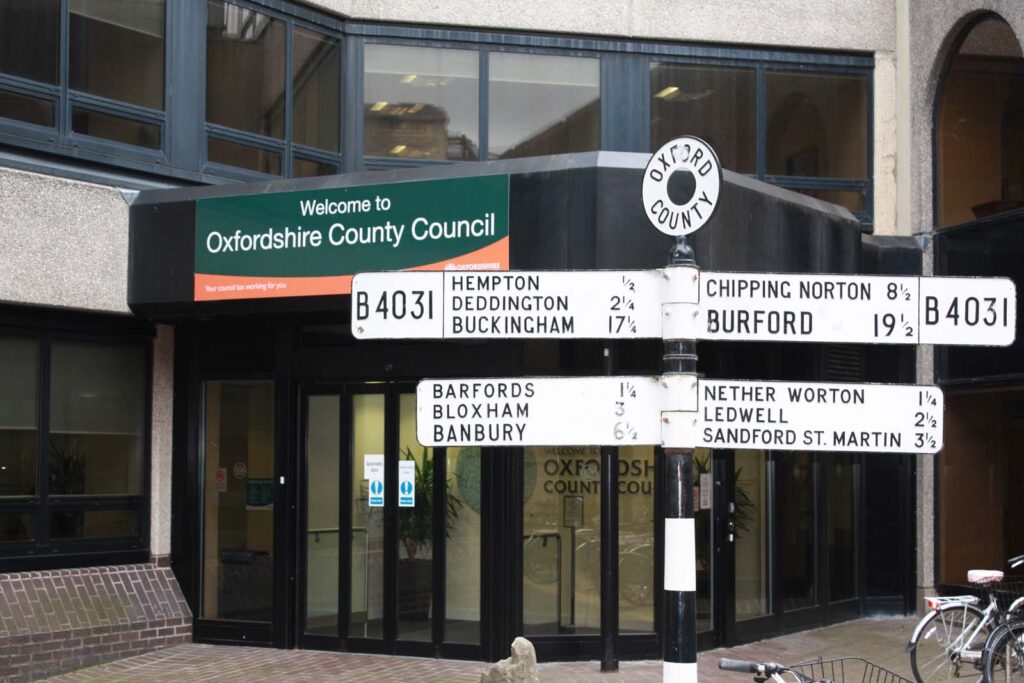The government-funded Regional Improvement & Efficiency Partnerships, led by Improvement Efficiency South East, is to set up a market place for trading under the Landfill Allowance Trading Scheme (LATS) this summer.
If there was a surplus on the market last year, there's likely to even more of one this year
Paul Borrett, Norfolk county council
Defra's second LATS news letter, circulated amongst councils last week, states that an advert will be placed to select a provider of the service to “deliver confidentiality, contractual security, a 'level playing field' for all involved and fixed transaction fees”.
Among the goals of the new market place are to “save time spent on price and volume discovery and administration”, “provide commonly agreed simple, standardised contracts for transactions” and to “allow buyers or sellers to buy or sell into the best available price at any pre-agreed time”.
The service will also be able to notify the Department, and the Environment Agency, of any potential market abuse, and will work closely with both of them, and the Local Government Association, to provide a “valuable service” to councils.
Avenues currently available for LATS trading include the Defra-run LATS Bulletin Board, direct trades between councils and also the use of a broker as an intermediary to arrange transfers of the allowances.
Trading
However, ahead of its introduction, both levels of trading and prices remain low, with a number of local authorities indicating that they are still unable to sell their large number of surplus allowances.
Last year, councils expressed their disappointment about being unable to make money from the surplus allowances they had hoped to sell (see letsrecycle.com story).
This situation has arisen as councils have introduced waste minimisation measures, boosted their recycling rates, and, in some cases, brought new waste treatment facilities on-line.
As a result, more and more councils hold a surplus of allowances, but an ever-decreasing number need to buy additional LATS allowances to allow them to send more waste to landfill.
And, while the system has allowed councils to bank their surplus allowances for either future use or to be traded, with 2009-10 being the first target year for the UK under the EU Landfill Directive, they will not be able to bank any in either 2008-09 or 2009-10.
As a result, councils with a surplus of allowances for the period 2005-06 to 2008-09 will not be able to carry them forward, and, with cash trading minimal at best, they are being forced to write them off.
Surplus
The 2007-08 accounts for the Greater Manchester Waste Disposal Authority indicated that: “Despite its best efforts, the Authority has been unable to sell any of its surplus allowances during the year and current market indications are that there is a surfeit of prospective sellers and no apparent buyers for current allowances.
“In view of this the Authority considers that the current batch of LATS allowances are of no value and allowances held have been written down accordingly,” it added.
Similarly, the North London Waste Authority's 'Best Value Performance Report 2008', published earlier this month, stated that: “As of 31 March 2008 the Authority is estimated to hold 231,603 surplus allowances with a book value of £1.158 million.
“Given that the LATS market for surplus allowances is very lacklustre ahead of the government's first target year in 2009-10 (because of the large number of excess allowance held by the majority of waste disposal authorities) it is quite likely that the Authority's allowances will be written off in due course,” it added.
And, minutes of finance sub-committee of North Tyneside council, published earlier this year, also state that the “larger part of the values of the allowance held in the balance sheet would be written off in 2007-08 to recognise their fall in value.
“It was commented that North Tyneside was not alone in being in a difficult position over LATS,” it added.
This assertion was borne out by Paul Borrett, the former chairman of the National Association of Waste Disposal Officers, and current waste resource manager for Norfolk county council.
He told letsrecycle.com: “There isn't a market, we've been trying to sell something for quite some time, and I know for a fact that there are other councils in a similar situation.
“We haven't even put a price on ours,” he added, explaining that “if there was a surplus on the market last year, there's likely to even more of one this year”.
And, his sentiments were echoed by Stephen Didsbury, head of waste and street services for the London borough of Bexley, who said that there was “no market at the moment”, and while allowance prices were around £17-20 last year, they had crashed at the end of 2007 and remained that way since.
Prices
Defra figures obtained by letsrecycle.com indicated that, as of April 25 2008, 1,294,411 LATS allowances had been traded by councils for the period 2005-06 to 2008-09, at prices ranging from £5 to £40.
Trading for future years is allowed under the system, but by April 25 only 12,666 allowances had been transferred, at prices ranging from £24 to £35 for 2009-10 (the target year), while for the period 2010-11 to 2011-12, 17,400 allowances had been traded at a price of £35.
However, these figures do not include trades that took place with no value, and Mr Didsbury noted that what little trading had taken place so far this year had been based around the swapping of LATS in the return for the use of facilities such as a MRF, rather than actual exchanges of money.
Effect
Despite LATS having little or no cash value, he suggested that “what it has done is scared everyone into doing things”, referring to councils developing recycling facilities, and added that “I think the psychological effect of LATS has worked even if people are not buying them”.
Mr Borrett explained that, with councils not able to carry over their banked allowances into 2009-10, trading to meet that year's LATS allowances could pick up, but had not yet done so.
“2009-10 will be an interesting year, there may be some trading during that period of time,” he said.
“You could do some future trading now for 2009-10, but there aren't that many local authorities that are that confident,” he added, referring to councils not knowing exactly when they would have facilities online.
In terms of the overall LATS system, he said: “There are benefits in retaining the system in the short-term, local authorities planning facilities may not meet deadlines, they may need to purchase a surplus for a short-term shortfall.”
He added that, as treatment facilities came online, there would be even less need to trade allowances, explaining that “if everyone's compliant, then there's no need for trading”.








Subscribe for free